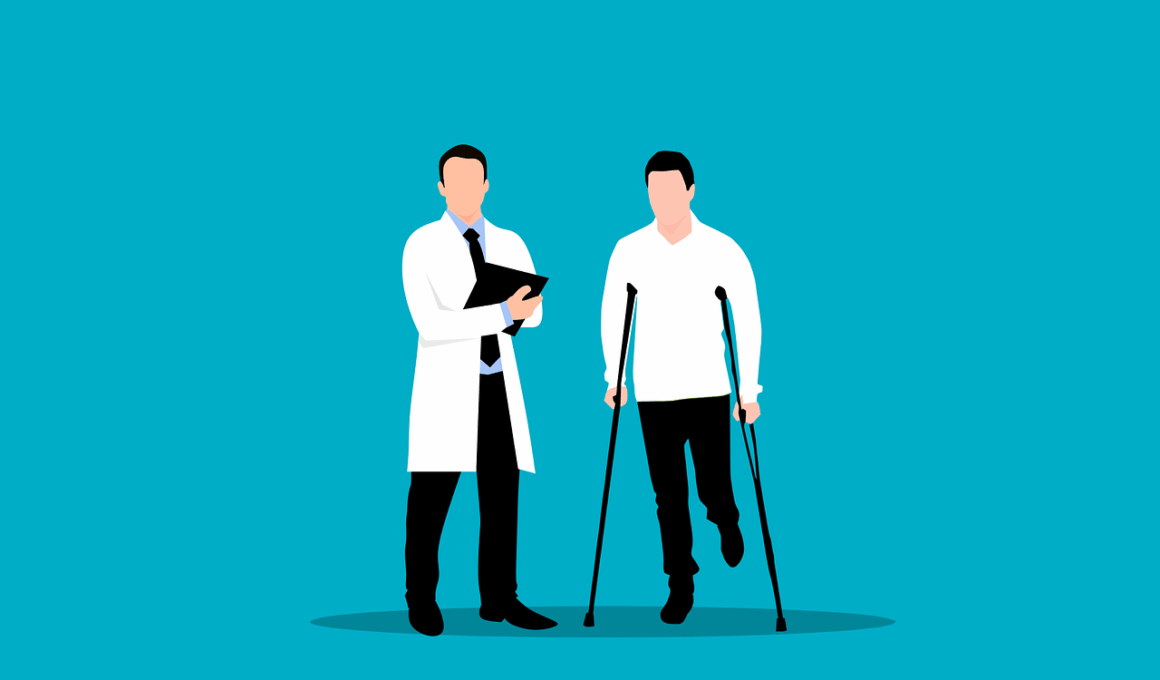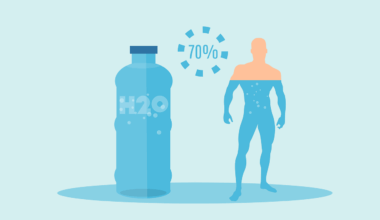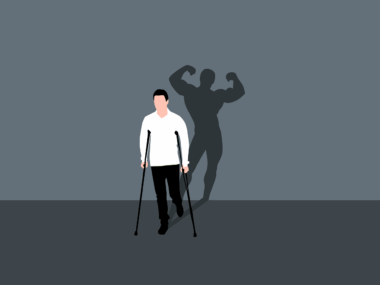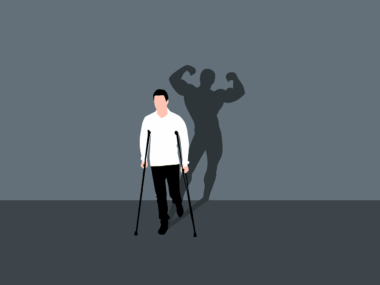The Role of Bootcamp Training in Neurological Recovery
Bootcamp training is increasingly recognized as an effective method for rehabilitation and recovery, particularly in neurological recovery settings. Individuals recovering from neurological injuries, such as strokes or traumatic brain injuries, often face significant challenges in regaining mobility and function. Bootcamp training provides a structured environment where participants engage in intensive physical activities designed to improve strength, coordination, and cognitive function. This method of training incorporates both physical and mental challenges that stimulate recovery not just in physical terms, but also in cognitive abilities. Participants are encouraged to work in a supportive group setting, fostering camaraderie and motivation among peers. Additionally, supervised sessions ensure safety and proper technique, reducing the risk of re-injury. Research shows that engaging in high-intensity functional training can enhance neuroplasticity—the brain’s ability to reorganize itself. This is particularly important in neurological settings as the brain adapts to new learning and movement patterns, encouraging quicker recovery and improvement. Overall, bootcamp training stands as a promising option for individuals on their path to recovery, providing a comprehensive approach to physical rehabilitation.
Neurological rehabilitation requires a multifaceted approach, and bootcamp training fits well within this framework. By integrating various physical exercises, participants can enhance their motor skills through intensive, targeted training regimens. These regimens typically include a mix of cardiovascular conditioning, strength training, flexibility routines, and functional movements that mimic daily activities. Each component functions synergistically to bolster the overall recovery process. For instance, strength training can facilitate muscle regeneration while cardiovascular exercises improve stamina and endurance. Furthermore, these bootcamp sessions are often adjustable, catering to varying fitness levels. This adaptability allows each participant to progress at their own pace, maintaining motivation while challenging their limits. Additionally, the social aspect of group training encourages accountability and provides emotional support, which is essential during recovery. Creating bonds with fellow participants can have a profound impact on mental health, making therapy more enjoyable and less isolating. Together, these elements of bootcamp training create a holistic recovery experience. They ensure that not just the body is engaged, but also the mind, leading to a more successful long-term rehabilitation process.
Benefits of Group Dynamics in Bootcamp Training
One significant advantage of bootcamp training is its emphasis on group dynamics, which plays a crucial role in the recovery process. Participating in group sessions fosters a sense of belonging and teamwork, motivating individuals to push past their limitations. Studies have shown that individuals in group settings generally experience improved adherence to their rehabilitation protocols. This is largely due to the peer support that helps sustain morale, encouraging participants to engage actively in their recovery. The atmosphere in bootcamp classes often features a blend of healthy competition and support, creating an environment conducive to personal growth. Peer encouragement can significantly uplift participants when they might feel discouraged or overwhelmed. Furthermore, engaging in group exercises can promote friendly competition, enhancing motivation and performance. Participants not only benefit from individual progress but also learn from observing others. This shared experience creates emotional connections that promote greater satisfaction and a sense of accomplishment. Ultimately, the group dynamics found in bootcamp training offer more than just physical benefits; they significantly contribute to mental resilience and emotional healing.
Physical activity is widely regarded as a key component of any rehabilitation program, especially for those recovering from neurological conditions. This highlights the essential function of bootcamp training in promoting regular exercise tailored to individual needs. Regular exercise can lead to a range of health benefits, including increased strength, improved cardiovascular health, better motor skills, and enhanced mood due to the release of endorphins. Bootcamp training not only emphasizes physical exercises but also incorporates cognitive tasks that challenge participants’ mental faculties while engaging in physical activity. This dual approach aids in improving both motor function and cognitive skills, addressing critical areas affected by neurological injuries. Furthermore, the structured schedule provided by bootcamp training can instill discipline and encourage routine adherence, beneficial for individuals needing consistency in their rehabilitation journey. Having a regular routine can also create psychological stability, which is essential for recovery. With differentiated workouts designed specifically for neurological rehabilitation, bootcamp training offers dynamic and stimulating sessions. This ultimately leads to a more engaged participant who is more likely to achieve their rehabilitation goals.
Enhancing Neuroplasticity through Bootcamp Training
Neuroplasticity is the brain’s remarkable ability to reorganize itself by forming new neural connections. This process is fundamental for recovery following neurological injuries. Bootcamp training addresses neuroplasticity by challenging participants with varied and intensive activities that stimulate brain function. Cognitive tasks incorporated into exercises can help reinforce connections between brain areas that are crucial for controlling movements and coordinating tasks. By continuously stimulating the brain through complex physical challenges, bootcamp training may facilitate faster adaptation and recovery. These activities can range from simple movements to more intricate, multi-step tasks that require focus and coordination. This increases participants’ cognitive engagement, which is vital for recovery. Moreover, consistent participation in these demanding environments fosters a sense of achievement, inspiring ongoing dedication to the rehabilitation process. Furthermore, the more active and engaged individuals are in their recovery, the greater their chances of maximizing the benefits of neuroplasticity. Therefore, bootcamp training not only serves as a physical rehabilitative method but also promotes cognitive enhancement essential for sustainable neurological recovery.
For those committed to their recovery journey, setting measurable goals can be pivotal. The structured nature of bootcamp training allows participants to define clear objectives for what they wish to accomplish, whether in terms of physical performance or cognitive improvement. Setting such goals can motivate rehabilitation participants to work harder and continually push their limits. The quantifiable nature of bootcamp exercises can help track progress effectively, creating a sense of achievement as each milestone is reached. In this way, participants become active agents in their recovery rather than passive recipients of therapy. Engaging in progress tracking also aids healthcare professionals in modifying treatment plans based on individual performance. Furthermore, the celebratory nature of reaching goals encourages participation and commitment to the rehabilitation process. With bootcamp training, the focus is not just on recovery, but on thriving, which is integral for individuals moving beyond their injuries. This proactive approach can inspire a growth mindset, where challenges are viewed as opportunities rather than obstacles. Therefore, goal setting within bootcamp training serves as an essential strategy, enhancing both motivation and recovery outcomes.
Conclusion: Embracing Bootcamp Training for Neurological Rehabilitation
In conclusion, bootcamp training presents a unique and effective option for individuals seeking successful rehabilitation following neurological injuries. The combination of physical and cognitive challenges, along with the benefits of group dynamics, creates an engaging environment for participants. As this training method encourages neuroplasticity and the development of both motor and cognitive skills, it stands out as a compelling alternative within rehabilitation programs. With numerous advantages, such as improved strength, emotional support, cognitive enhancement, and personalized progress tracking, bootcamp training meets the diverse needs of individuals on their recovery journeys. The social aspect of shared goals further adds to the training, making the process more enriching and enjoyable for participants. As healthcare professionals continue to explore innovative rehabilitation techniques, integrating bootcamp training can offer holistic benefits that address the complex nature of neurological recovery. Moreover, individuals who embrace this approach are not only likely to succeed in their rehabilitation but also find joy and fulfillment in the shared experience. Ultimately, bootcamp training embodies a transformative experience, providing hope and empowerment to those on the path to recovery.
This is another paragraph with exactly 190 words…








